Photographs: Reuters Surajeet Das Gupta and Sharmistha Mukherjee in New Delhi
Automobile companies in India may have many headaches, but land availability doesn't figure in that list.
Consider this: land intensity, or the number of cars made per acre, by Indian companies is much lower than global standards.
Maruti Suzuki, for example, has committed to make 2,000 cars for every acre of land at its new plant to come up in Mehsana district of Gujarat.
. . .
Land utilisation: Car firms in slow gear
If achieved, that will be its best record, if one excludes Maruti's own Gurgaon plant, where as many as 3,148 cars are produced per acre.
Experts say this can be excluded, as it is an old plant where capacities have been enhanced continuously.
But the land intensity of Maruti's Gujarat plant will be quite low compared to other plants in similar markets around the world (where a lot of small and mid-sized cars are made).
For instance, Suzuki's Kosai plant in Japan churns out 2,500 cars an acre, or it makes 750,000 cars per annum in a plant which has taken up less than 300 acres.
. . .
Land utilisation: Car firms in slow gear
In China, the joint venture plant between General Motors and Chinese car makers such as SAIC and Wuling Motors in Liuzhou can make 3,600 cars in an acre. It makes 800,000 cars per annum in 220 acres of land.
The picture gets worse if one compares Maruti's land intensity with that of other car companies in India.
Tata Nano's Sanand project, PSA Peugeot and Ford India, which are setting up or have plants in Gujarat, will churn out only one-third to one-fourth the number of cars Maruti will produce in an acre based on their stated full capacity.
In Maharashtra, Volkswagen's Chakan plant might be a marvel of German engineering but it currently produces about a ninth of Maruti's stated figure.
. . .
Land utilisation: Car firms in slow gear
And Honda, which acquired land nearly two years ago in Rajasthan to set up a 250,000 per annum car plant, is still waiting because its current plant in Uttar Pradesh is working at half the capacity.
The company, of course, makes some components at the Rajasthan facility.
So, are car manufacturers cashing in on the offer of cheap land by state governments and buying much more than they need for their projects?
. . .
Land utilisation: Car firms in slow gear
Car companies say they are buying more land for investments in the future and analysts say they are doing so because they want to sit on land, whose prices will go up dramatically -- as much as four to fivefold once Parliament clears the contentious Land Acquisition, Rehabilitation and Resettlement Bill, 2011.
That could dramatically increase the cost of land as a percentage of the total project cost in future.
. . .
Land utilisation: Car firms in slow gear
Photographs: Reuters
Looking at it from another plane, land has a price, and though it is cheap now, it does push up the overall project cost.
According to Maruti, its cost of land as a percentage of total investment in Gujarat will be around 2.33 per cent.
While Tata Motors refused to divulge either their land costs or investment in the Gujarat plant, some indication can come from their Singur project, which proved to be still-born.
According to a Feedback Infrastructure Services analysis, land constituted 8.2 per cent of the total project cost.
. . .
Land utilisation: Car firms in slow gear
Most analysts say it will be higher in Gujarat, where the land price is much higher.
So, why are car manufacturers buying so much land in India?
Abdul Majeed, partner, PricewaterhouseCoopers, who leads their auto practice in India, says land usage intensity of automobile companies in India is lower than that of their global counterparts.
Unlike in the US or in China, the Indian market is at a take-off stage and that's why surplus land and capacity are available with companies here.
. . .
Land utilisation: Car firms in slow gear
Second, land acquisition is a big challenge in the country.
Companies prefer to purchase more land than required at the onset so that in future when they need to expand, they do not face any hurdles.
The other reason, of course, is that companies are acquiring as much as possible when it is cheap.
According to Feedback Ventures, the new Land Acquisition Act will impel land moving up from five-eight per cent of project cost historically to as high as 25-30 per cent.
That is much higher than the global auto standards, where land is never more than 20 per cent of the project cost.
That apart, in Sanand, for example, land prices have gone up dramatically after the Nano project came in.
According to experts, the price of land other car companies that came after Tata to set up shop in Sanand are paying is already about 30 per cent more.
. . .
Land utilisation: Car firms in slow gear
Image: Nano cars are displayed before a test drive session for journalists at the company's plant in Pimpri.Photographs: Punit Paranjpe/Reuters
Car companies have their own defence for buying more land.
A Tata Motors spokesperson, when asked to compare the higher intensity of land usage by some Japanese and Korean companies, quipped, "We set up plants as per our layout norms and plans. There is nothing sacrosanct that one has to follow the Japanese or Koreans or anyone else."
He declined to divulge any details on their land costs or answer as to why the company needs so much land.
Volkswagen did not reply to an email query on its land usage.
. . .
Land utilisation: Car firms in slow gear
Image: Volkswagen Phaeton.Photographs: Hitesh Harisinghani/Rediff
Ford India did not reply to specific questions on the land deal, except providing acreage details.
But, Maruti's chairman R C Bhargava says it is a question of varying approaches between companies on manufacturing.
"We acquire as much land is required and nothing more for the distant future. Our focus is on reducing the capital investment in the project so that we can make cars at a lower cost.
"That is why our factories might look more crowded."
Bhargava says the company does not believe in raising investment costs by buying large tracts of land so that it can get more concessions from the government.
. . .
Land utilisation: Car firms in slow gear
That is because tax concessions by state governments are linked to the project cost.
"The concessions you get to a great extent neutralise the cost of extra land you buy, especially as you know the price will only go up. So, it's a win-win situation," says a director at a leading international auto company scouting for land.
He points out it is very much possible to set up a 125,000 per annum car project with about 100 acres of land in India.
"You should not need more land than this as most car companies would set up another plant in another location so that they don't have all their eggs in one basket. So, this future expansion argument makes no sense," he says.

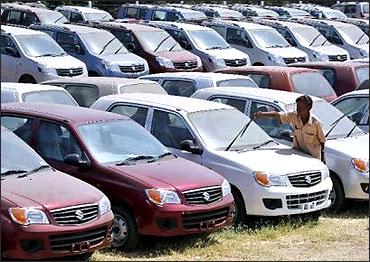
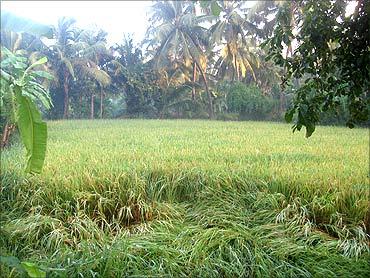
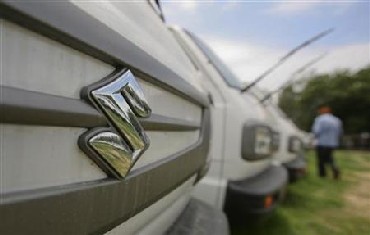
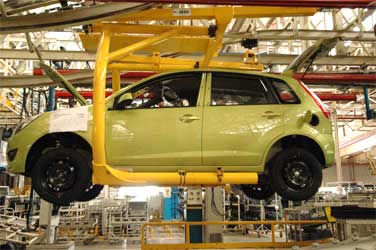
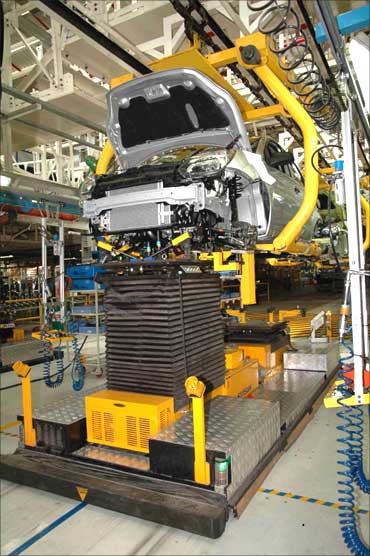
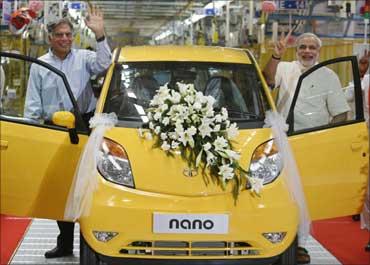

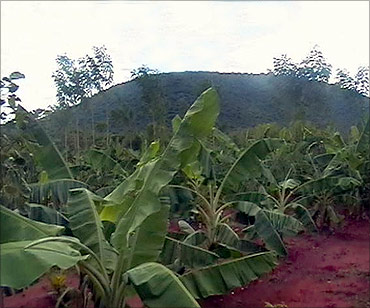
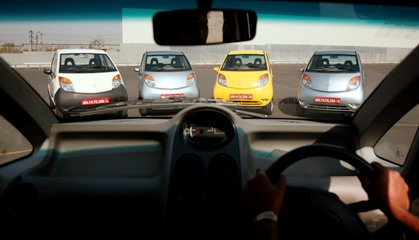
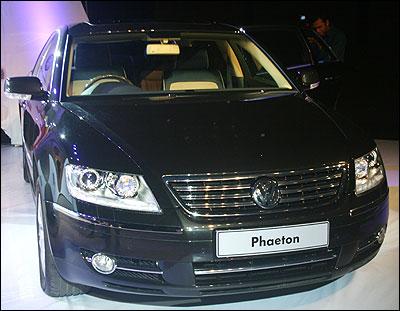
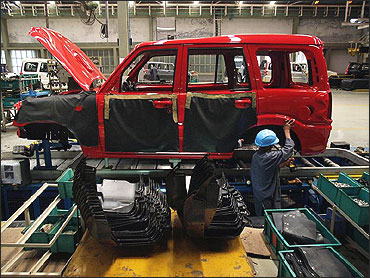

article